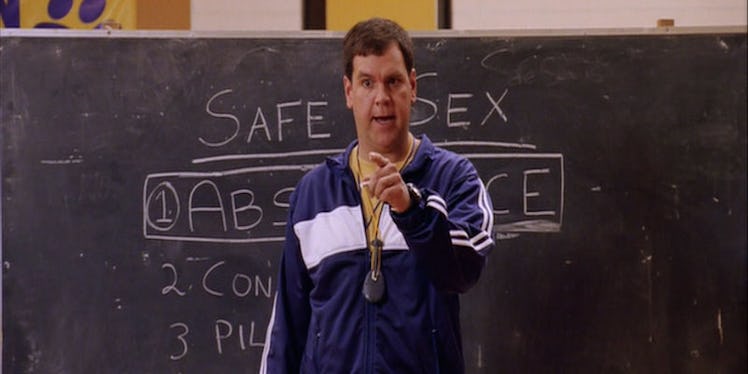
How America's Abstinence-Only Sex Ed Policy Is Failing Millennials
Many schools are aware of sex education, but they underestimate its importance. They either teach the abstinence-only guide, or they spend very little time explaining things students are curious about when it comes to sex and the human body.
Growing up, my school district didn't include sex education as a priority. We didn't even have an actual class to learn about our bodies sexually. Our education intermingled during gym class for only a couple days. This included elementary, middle and high school. We mostly went over things such as the muscles in our body, how our body functions based on the types of food we eat and how to stay healthy.
While these topics were necessary, our teachers put in too much time focusing on these topics instead of teaching us about sex. We learned about our body parts, what STDs are and what periods are, but everything else was either too broad or not discussed enough.
I remember only learning about three STDs. But, we only learned about what they are and how they affect the body. We learned that condoms are useful when it comes to protection, but we oddly didn't learn about birth control. It was even more unusual since our curriculum spent a good chunk of time going over periods.
However, the older I got, the more I became concerned about birth control. I was aware of what birth control was, but it wasn't until I talked to friends who were on the pill and my gynecologist that I was given the proper information. I was really embarrassed to talk to them about going on the pill, but all of them told me it wasn't something to be afraid of.
This was a huge problem with me because of lack of proper sex education. I noticed I was either afraid or not completely aware of many sexual decisions. Many of my friends who weren't really experienced were in the same boat as me. We all just used to our imaginations or listened to stories we heard from peers who shared their sexual experiences with us.
The first time I had sex, I had a very interesting experience. My first time was with a guy a couple years older than me, and because I wasn't very experienced, I assumed all of his actions were right. I enjoyed the sex and I learned to open up and explore my body with him, but it seemed a bit rushed.
At first, I was nervous asking him some questions regarding some things we did, but eventually, I became completely comfortable around him. While I was lucky in that sense, I still lacked a good amount of information. So, I still had to continue finding answers.
Sometimes I would Google things or ask close friends about certain topics. The worst incident was my pregnancy scare. We didn't go over the signs of pregnancy in school. We just learned that having unprotected sex leads to pregnancy.
The problem with Google is that there are millions of sites with different answers, and between the responses from the people on the Internet and my paranoid mind, I convinced myself I was pregnant.
I was a freshman in college at the time, but I was taught that getting pregnant around my age would mean I would have a sh*tty future. If I kept my child, he or she most likely wouldn't have a father figure in his or her life. I was terrified, so the only way I could tell if I was pregnant was to take a test. I needed a friend to come with me, not only for support, but also for her to tell me which test I should take or how it works.
I was mortified that I was in college, yet I was still unaware of all this information. My friend even asked me if I was taught this. Turns out, I wasn't alone in this situation. While it's great that there are so many people in my generation who want better sex education, there's a problem to this.
The majority of us shouldn't have to complain or argue for the proper education. Schools need to understand that although this topic can be very sensitive or awkward, they need to get past that and teach their students properly.